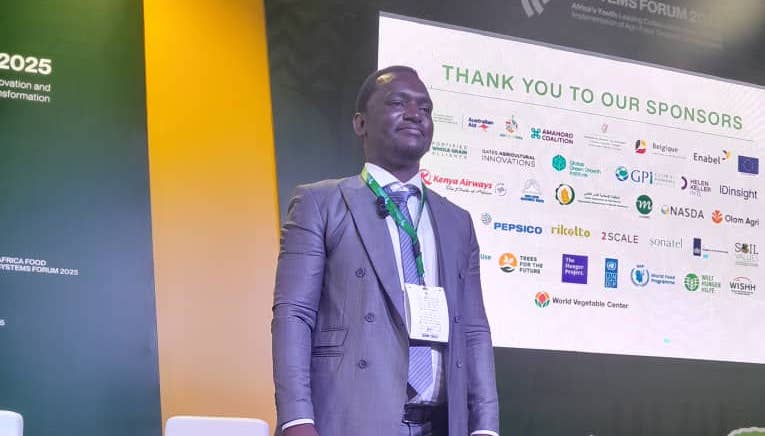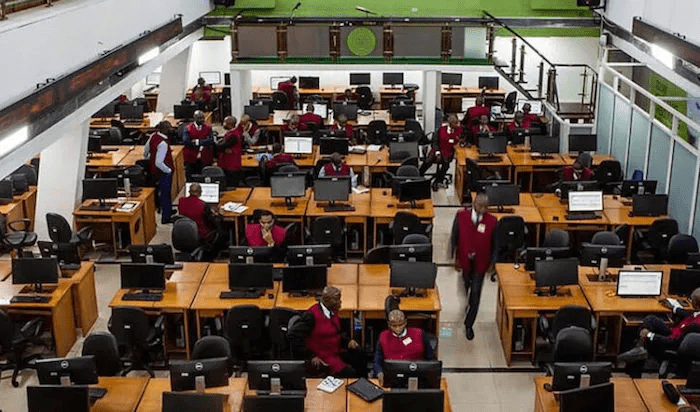By Charles Márìndọ̀tí Olúdàre
In a recent and astonishing display of intellectual dereliction, former Secretary to the Government of the Federation, Boss Mustapha, boldly asserted that President Bola Ahmed Tinubu did not make Muhammadu Buhari president. That statement, rather than elevating political discourse, represents a troubling retreat from both fact and logic. It is the political equivalent of a man who, knowing how to calculate 2 + 2, presumes himself a statistician. Few claims could be more factually awry or intellectually dubious than this one.
It is the kind of reasoning that assumes elections are won by the sheer number of votes rather than the margins that flip political battlegrounds and the sophistication required to navigate national political thresholds, such as Nigeria’s constitutional requirement for 25% of votes in at least two-thirds of the states.
Boss Mustapha, perhaps swayed by the euphoria of numbers from the North, where Buhari’s vote count was indeed dominant, forgets that no presidential victory in Nigeria is ever won by one or two zones. In fact, President Tinubu’s own record shows that he received just about 17.7% of his votes from the Northwest, despite its population. That figure alone renders Boss Mustapha’s argument not just weak, but entirely dismissive of the vote margins in swing regions — notably the Southwest and the North Central — which played a decisive role in Buhari’s victory in 2015.
More glaring is the former SGF’s inability to contextualize the structural reforms between 2011 and 2015 that transformed Nigeria’s electoral system:
1) The introduction of Smart Card Readers that drastically reduced over-voting and inflated figures
2) The shift to PVC-based accreditation, which disenfranchised fake and duplicate registrations
3) The separation of accreditation and voting periods
4) A significant clean-up of the voter register, which saw millions of ghost voters removed.
These reforms tightened electoral integrity and exposed just how artificially bloated previous vote counts had been, particularly in the North. It was only with Tinubu’s political dexterity, the merger of opposition forces, and his groundwork in the Southwest, that Buhari could finally achieve national spread — after three failed attempts.
Boss Mustapha’s failure to grasp these electoral and structural evolutions reveals a tragic lack of political and analytical sophistication. This may well be the undoing of whatever coalition he chooses to support ahead of 2027. Elections are not won merely by historic loyalty or rhetorical bravado; they are won through careful coalition-building, cross-regional outreach, and strategic brilliance. All of which President Tinubu brought to the table in 2015.
But the danger of Mustapha’s statement is not merely its factual inaccuracy or disrespect to President Tinubu. It is that he utterly fails to appreciate the spirit of camaraderie and sacrifice that underpinned the 2013 merger that gave birth to the APC. In making such a boast, Mustapha did not just insult Tinubu; he undermined the very spirit of collective struggle that birthed the first successful opposition victory in Nigeria’s democratic history.
He also diminished himself, and worse, disrespected President Buhari, whose humility and strategic patience in that era of delicate coalition-building stand in sharp contrast to the chest-thumping of his former SGF. Indeed, the tone of Mustapha’s remarks calls to mind why the merger talks of 2011 collapsed — due to the arrogance of some northern political elites who refused to see any southern politician as an equal partner.
If anything, Mustapha’s revisionist remarks validate the historic role played by Tinubu, whose foresight, negotiation skill, and sacrifice made Buhari electable in 2015. Without Tinubu, there was no merger. Without the merger, there was no presidency.
This is not just a political truth. It is historical fact.
And as the 2027 elections approach, those who still see politics through the narrow lens of regional pride and self-congratulation will find themselves left behind. Nigeria has moved on. Perhaps it’s time the likes of Boss Mustapha did too
*Dr. Charles Márìndọ̀tí Olúdàre is a physician, political strategist, and Convener of the Social Rehabilitation Gruppe.


